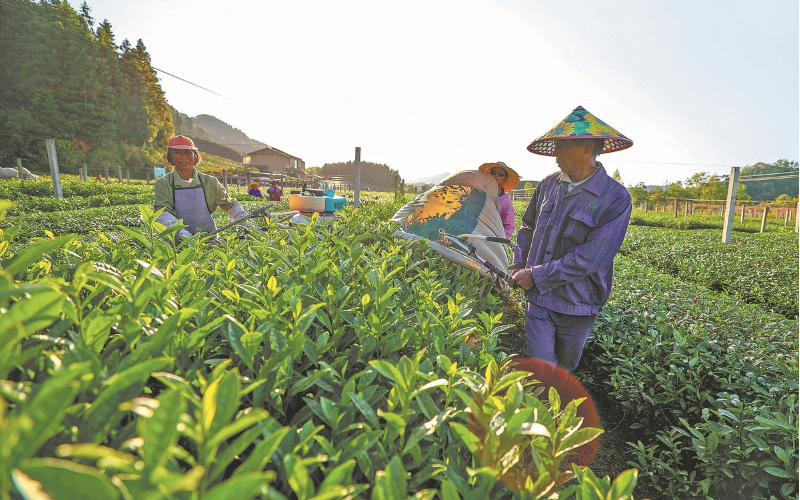
Workers operate tea-picking machines at an organic tea plantation in Hangzhou, Zhejiang province. [Photo provided to ezhejiang.gov.cn]
Zhejiang province is stepping up efforts to internationalize its tea industry with the release of a policy framework aimed at boosting exports and expanding global market presence.
The plan, jointly issued by the Department of Agriculture and Rural Affairs of Zhejiang Province, Hangzhou Customs, and Ningbo Customs, marks the province's first systematic policy package dedicated to tea exports. It covers the entire industry chain, from standardized plantation development to product diversification and overseas expansion.
Zhejiang is a national leader in tea exports. In 2024, the province ranked first in both tea export volume and value. In the first half of this year alone, Zhejiang exported 93,000 metric tons of tea, up 21.5 percent year-on-year, with export value rising 23.4 percent to 2.1 billion yuan ($288 million).
The new policy outlines three core goals to be achieved by 2027: establishing 80,000 mu (about 5,333 hectares) of internationally certified tea plantations, reaching $500 million in annual tea exports, and cultivating 10 leading tea enterprises with annual exports exceeding 100 million yuan each.
To reach these goals, the plan calls for support for standardized tea garden construction, including mechanized upgrades and eco-friendly, low-carbon management. It also encourages an innovative dual sourcing model — combining in-province registration with out-of-province co-development — to stabilize raw material supply.
In line with shifting global consumption trends, the policy prioritizes the development of value-added tea products, such as matcha and whole-leaf teas, as well as tea-based foods and accessories. By 2027, Zhejiang aims to increase the share of deep-processed tea products to 10 percent of total export value.